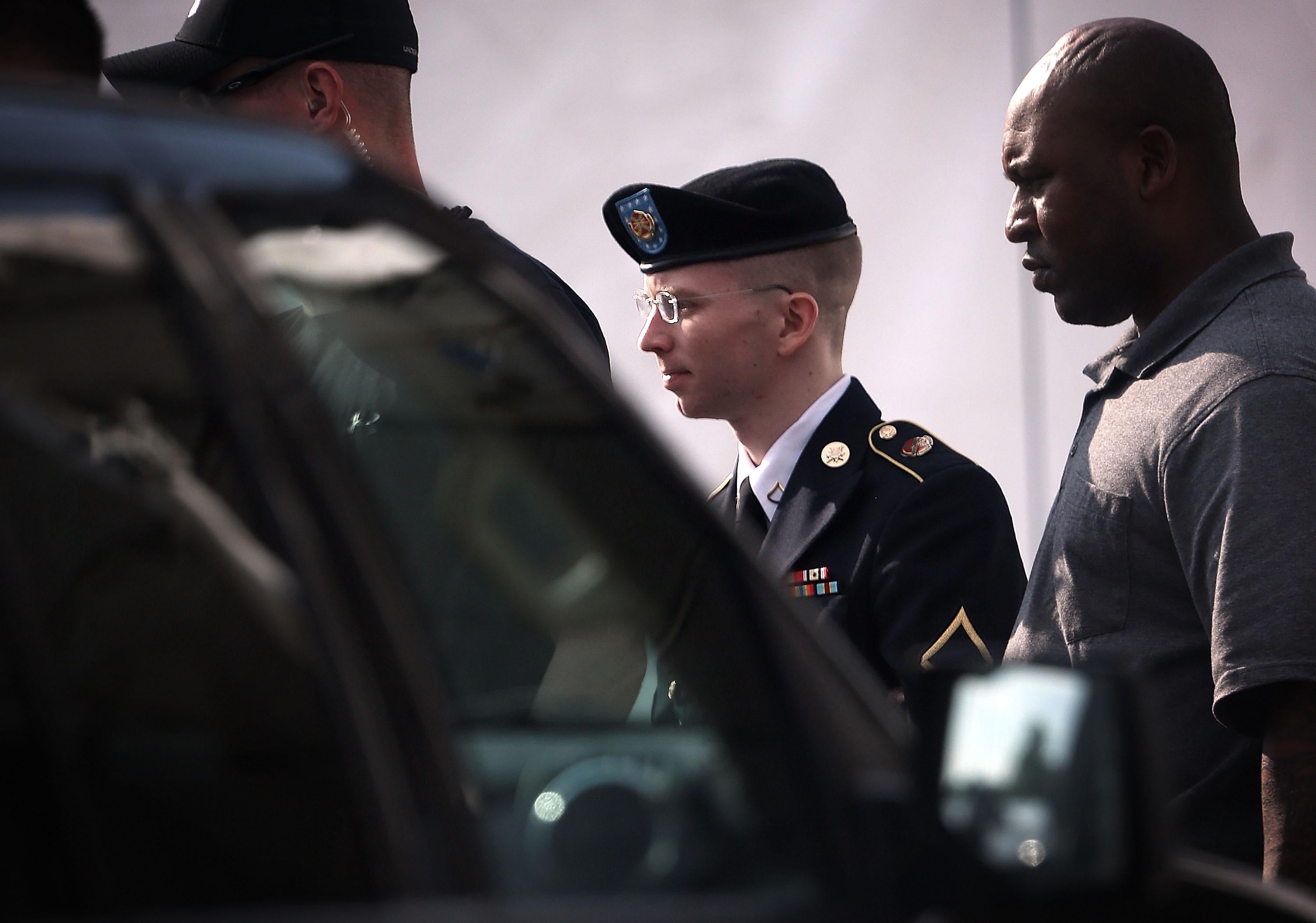Army prosecutors of Bradley Manning, the U.S. private who stole classified information to give to WikiLeaks, rested their case today, providing evidence from 80 witnesses over 14 days. But how strong is the army’s case? The AP reports:
[Manning] is charged with 21 offenses, including aiding the enemy, which carries a possible life sentence. To prove that charge, prosecutors must show Manning gave intelligence to the anti-secrecy website WikiLeaks, knowing it would be published online and seen by an enemy of the United States …
Prosecutors struggled … to prove Manning collaborated with WikiLeaks founder Julian Assange or looked to WikiLeaks for guidance—assertions meant to show that he leaked the material with evil intent.
Manning’s intent is a key issue, said Philip Cave, a retired Navy lawyer in private practice in Alexandria, Va.
“I think it was pretty clear that WikiLeaks would have released anything and everything,” he said. “Just because he did it that way, is that evidence of intent to share it with the enemy?”
Manning has already pleaded guilty to charges of stealing the information and providing it to WikiLeaks, crimes that carry with them a 20 year sentence. But without evidence that the private wanted to do anything more than expose governmental malfeasance, a lifetime sentence remains unlikely.
Public support for Manning remains fairly low, though some laud him as a noble whistleblower. A demonstration in support of Manning (who is openly gay) at San Francisco’s Pride parade drew over 2,000 marchers last weekend.
